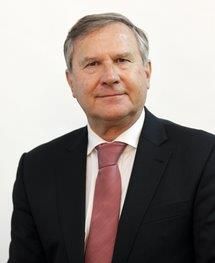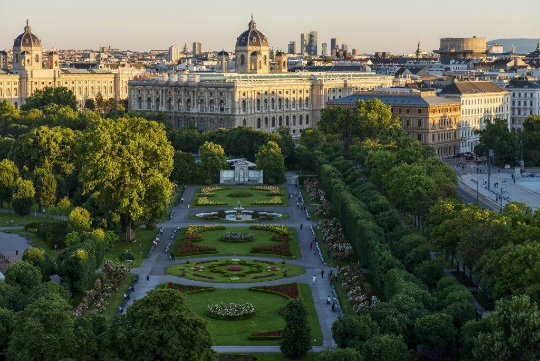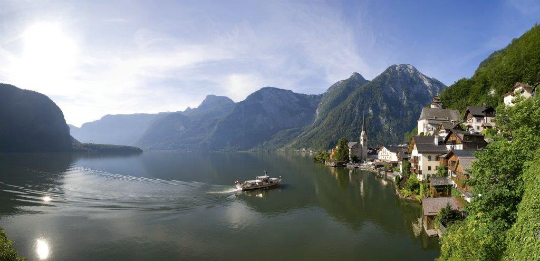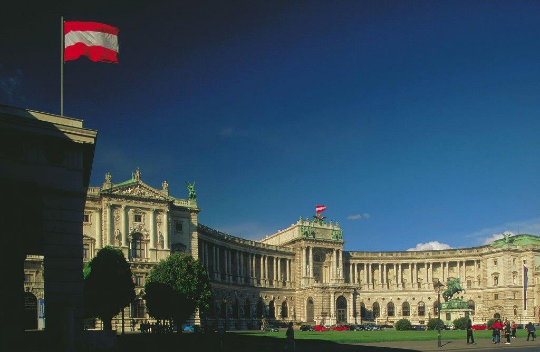-Austria boasts a wealth of great places to visit
On the occasion of the Austria National Day which falls on Oct. 26,
Austria Amb. Michael Schwarzinger contributed this article to
the NDNnews (www.ndnnews.co.kr) & The Seoulcity Magazine
as follows. -Ed.
 |
| Austria Amb. Michael Schwarzinger |
The Republic of Austria is located in the mountainous center of Europe
and is a direct neighbor with eight other states.
The Austrian National Day relates to political developments after
World War II and is celebrated on 26 October. In 1945, the four
allied powers (Soviet Union, United States, Great Britain and France)
occupied the country and divided it into four zones. Although the
Austrian parliament was democratically elected, under the occupation
regime each legislative regulation or political action of the
Federal Government required prior consent from the Allied Control
Council and later on could still be vetoed by it.
 |
| Panoramic view of Salzburg. (Courtesy: Embassy of Austria) |
Long winding negotiations over ending the occupation could finally
be concluded in the spring of 1955. The resulting Austrian State
Treaty entered into force on 27 July 1955. It gave back Austria its
full sovereignty. In line with the treaty, on 25 October 1955, the last
foreign military staff left the country. On 26 October 1955, the very
first day without foreign troops in Austria, the parliament adopted
the Constitutional Law on the Neutrality of Austria, in which the state
declared its permanent neutrality and committed itself to maintain
and defend this status with all means at its disposal.
 |
| A complete view of Wien. |
Austria’s permanent neutrality is relevant with regard to international
armed conflicts which can be qualified as “wars”. The practical
importance of Austria’s
neutrality lies in prohibiting Austria to conclude military alliances
and to permit foreign military bases on its territory. It also requires
a thorough legal assessment by the Austrian authorities before
foreign military aircraft are granted overflight rights over Austria.
Much of what used to be referred to specifically as “policy of
neutrality” is now the general foreign policy of a state emphasizing
the importance of the Rule of Law in international relations and
offering its assistance to promote the peaceful settlement of disputes.
 |
| Austria boasts a wealth of great places to visit |
In 1965, Austria chose 26 October as the Austrian National day. It is
a public holiday in Austria. Offices, banks, schools and businesses are
closed. Public transport runs on a reduced schedule. On that day, the
Austrian national flag is omnipresent throughout the country. In Austria’s capital city Vienna, the Federal President lays a wreath at the tomb
of the Unknown Soldier at the Burgtor, the Council of Ministers holds
a festive meeting, the Federal President and the Federal Minister of
Defense attend a celebration at Heldenplatz, new recruits of the
Austrian Armed Forces are sworn in, the Federal President addresses
the public in a “State of the Union”-styled speech on TV, the Federal Chancellery and several Ministries
open their doors to the public. Some federal museums can be
visited for free on that day or at a discounted fee. Various institutions
also open their doors to the public.
 |
Austrian Embassies around the world celebrate the Austrian National
Day by hosting events for Austrian citizens.
Austria boasts a wealth of great places to visit. For many Vienna is
the world’s most “liveable” city. In its 22nd district lies beside the pretty Lake
Iris the Korea Culture House, a glass and concrete pavilion of elegant 60’s style architecture. By the way, Korea and Austria celebrate in 2017
the 125th anniversary of their bilateral diplomatic relations. Austria’s second and third biggest cities, Graz and Linz became elected as
European Capital of Culture each for a year. Some say the city of
Salzburg is one big open-air set. And there are smaller and even tiny places in Austria which
welcome visitors of all over the world, eventually with a cozy Christmas
market (here a special tip is Innsbruck), Heurigen wine restaurants, a
beautiful lakeside, summer concerts and festivals, surprising ancient
customs, or ski slopes.

